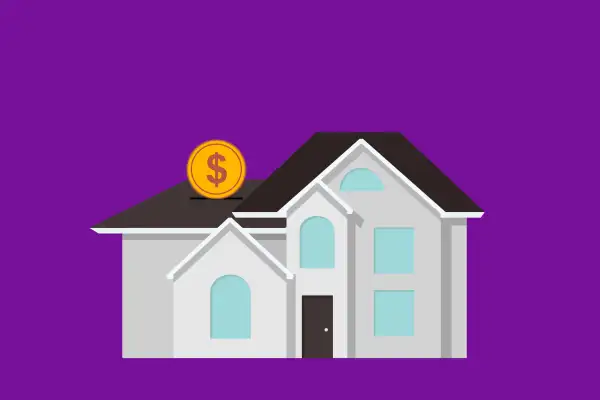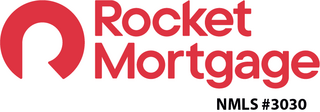Best Jumbo Mortgage Lenders

If the home of your dreams costs more than about a half-million dollars, you’ll need to take out what is known as a jumbo loan.
A jumbo mortgage is one that is too large to be guaranteed by Fannie Mae and Freddie Mac, the government-sponsored enterprises that buy more than 40% of the home loans originated in this country. The conforming loan limit for 2026 is set at $832,750 in most places and $1,249,125 in high-cost areas. This means any mortgage loan exceeding these amounts will be considered non-conforming (jumbo).
The demand for jumbo loans is high. For one, as home values have continued to rise, many properties have been elevated to this level. In light of this, not all jumbo borrowers are exceedingly wealthy.
“Our jumbo mortgage customers tend to live in major cities, many in coastal areas – places like California, New York, Boston, Miami, and Washington D.C. — where real estate prices tend to be higher,” said Glenn Brunker, head of mortgage at Ally Bank. “In these areas where the cost of living is high, even many first-time homebuyers will need jumbo loans to achieve homeownership.”
Still, it’s harder to qualify for a non-conforming loan. Jumbo borrowers typically need higher credit scores, lower debt-to-income ratios, and larger down payments (as a percentage of the loan amount). “Right now, qualification for a jumbo is difficult because jumbos don’t carry any government guarantee,” explained Emanuel Santa-Donato, head of capital markets at online lender Better.com. “There is no backstop to borrower credit. We’ve seen cash-out refinance, lower FICO [scores], and loan-to-values above 80% all but disappear from the jumbo space.”
While economic uncertainty surrounding the coronavirus has made a jumbo mortgage harder to get, it’s not impossible. Here are our picks for the best lenders for jumbo mortgages right now. We selected these lenders based on down payment requirements, ease of application, and customer service quality and availability.
Money’s Top Picks for Best Jumbo Insurance Lenders
- Chase Home Lending: Nearly 5,000 branches available nationwide
- Rocket Mortgage: Quick online application process
- Veterans United: VA jumbo loan with 0% down payment
- Better: Quality online experience for potential homebuyers
- Ally Bank: Prompt pre-approval
Disclaimer: While the information provided here was up to date and accurate at the time of publication, it may have changed in the interim. We will continue to update this article as needed, but we urge readers to check with lenders for the latest information regarding loan specifics.
Best Jumbo Mortgage Lenders
Chase Home Lending: Best for Traditional Banking
Chase Home Lending offers jumbo loans of up to $3 million ($1 million for an investment property), supported by a traditional banking infrastructure that includes nearly 5,000 branches across the United States. Chase’s jumbo mortgages are offered as fixed-rate, adjustable-rate, and interest-only loans.
Homebuyers who are already Chase customers may qualify for discounts. Borrowers must put down at least 20% of the purchase price, for a maximum purchase loan to value ratio of 80%. Approval is subject to a minimum credit requirement, and a determined amount of liquid cash reserves left over after closing. Chase also has a closing guarantee, which states that if you don’t close on your mortgage in three weeks’ time, you’ll receive a $5,000 cashback.
Interested homebuyers can get prequalified online by providing some basic personal and financial information. Should you require additional support, Chase customer service is available by email or by phone during regular business hours.
Rocket Mortgage: Best for Easy Application
Rocket Mortgage is an online mortgage platform associated with Quicken Loans. What sets this company apart is its online application, designed to simplify the process for potential borrowers while saving them time. Without having to speak to anyone, you can promptly find out the amount you qualify for either online or via the mobile app. This streamlined process made an impression when it was introduced in 2015, and its convenience is a big reason why Quicken is now the largest mortgage lender in the country.
For jumbo loans, Rocket Mortgage only requires a 10% down payment — a more flexible amount when compared to most lenders in the industry, which require a strict 20%. Their mortgages are available as fixed-rate or adjustable-rate loans.
Rocket Mortgage provides a wealth of information for first-time homebuyers. You can click on the question mark icons throughout the page to get short answers to common questions. After approval, the platform will also offer you online tools like calculators and guides that can help you through the closing process. The company also has customer service agents available via phone (regular business hours, seven days a week) and online chat (every day until midnight).
Veterans United: Best for VA Jumbo Loans
The largest VA lender in the United States, Veterans United offers jumbo 30-year loans of up to $1.5 million for active and retired service members.
If you’re a service member, your first step should be to apply to the Department of Veterans Affairs for a Certificate of Eligibility as proof that you qualify for a VA home loan. This process requires basic information and can be completed online.
Veterans United provides around-the-clock customer service via phone and email, which is particularly helpful for service members who may be stationed all over the world. While Veterans United does not offer an online application, once a borrower begins the mortgage process, they can track the loan’s status on the Veterans United website. Veterans United also has 26 physical branch locations across 18 states. Many of these branches are located near active military bases.
Better: Best Online Lender
Better is an online-only lender that provides a smooth customer experience through an easy-to-navigate website. To get started on a jumbo loan application, borrowers input some basic information, and the site will provide a list of options you may qualify for.
Better.com has a home affordability calculator that can give you an estimate of your interest rate and monthly payment so that you can make an educated decision. The current minimum down payment for its jumbo loans is only 10%, down from 20% during the thick of the COVID pandemic.
The company also made it a point to let us know that it doesn’t pay commissions to its loan officers. It does this so that loan officers don’t have any incentive to steer customers to products that don’t meet their best interests. Better.com claims their pre-approval process only takes three minutes, and while Better.com’s operation runs solely online, you can also receive help from an agent via email or phone.
Ally Bank: Best for Quick Pre-Approval
Ally Bank is an online lender that claims homebuyers can be pre-approved for a jumbo loan in just three minutes. The company’s fully automated online application asks users a set of simple questions that require basic information regarding the property, income and assets. The process is user-friendly and should be easy to understand for first-timers as well as seasoned homebuyers. If at any point during the process you require help, Ally has loan consultants available via email, phone, or chat to answer any questions.
Ally Bank offers jumbo loans of up to $4 million for a primary home, and homebuyers may qualify for a down payment amount as low as 10%. These jumbo loans are offered as fixed-rate and adjustable-rate mortgages. Additionally, if you have an account with Ally Bank, you’ll receive $500 toward closing costs.
How We Found The Best Jumbo Mortgage Lenders
We used the following factors to pick our top jumbo mortgage lenders:
Down Payment Requirements
Since lenders often want larger down payments for jumbo loans than conforming mortgages, we looked into each lenders’ down payment requirements, as well as the fine print. We favored those offering greater flexibility in these areas. However, as the economy stands right now, many lenders require jumbo homebuyers to put down less than 20% of the property value.
Ease of Application
Securing a loan can present a variety of challenges for borrowers, particularly first-time homebuyers. That’s why a streamlined application process is essential to reduce any potential difficulties. Simple modern technology makes it possible to get started online and, in a matter of minutes, request a quote and get pre-approved without having to set foot inside an office. We prioritized lenders that provide a user-friendly interface to facilitate this process.
Customer Service
We favored companies that offer transparent, up-to-date information about their jumbo loan products as well as online resources and tools like calculators. Additionally, we preferred lenders that provide support through various channels, such as online or via a mobile app, email, or phone.
How Jumbo Mortgages Differ From Conventional Loans
As the word implies, everything’s bigger with jumbo. Whereas a homebuyer could get approved for a conventional loan with a FICO credit score around 600, jumbo lenders require potential buyers to have a score of 700 or higher.
Jumbo lenders also typically require a debt-to-income ratio lower than 43%, the conventional limit. “Generally, DTIs for jumbos may range up to 43%, but in today’s risky and changing lending climate, 35% is probably closer to reality,” said Keith Gumbinger, vice president of HSH.com.
As far as down payments are concerned, some lenders require 20%. In the past, some lenders might have needed as little as 5%, but that’s changed given the current state of the economy. It would seem that lenders don’t want to take on too much risk in the face of rising unemployment numbers. “Jumbo loans with less than 20% down are still available post-COVID, but there are far fewer lenders offering them, so the terms are a little bit worse,” said Josh Lewis, certified mortgage consultant at BuyWise Mortgage. “It’s tighter than it was at the start of 2020.”
Another critical difference between conventional and jumbo loans is closing times. Because there is a stricter vetting criterion for jumbo loans, the process might take a bit longer. Some lenders also require that potential borrowers provide tax returns for several years instead of the usual two years for a conventional loan. And then there are the cash reserves, which is the amount of money you will have in your bank accounts after closing. With jumbo loans, some lenders require you to have from two months to one year’s worth of mortgage payments in liquid funds.
While these are the current jumbo loan requirements, things may continue to change and evolve as the mortgage market adapts to today’s environment. “We’re watching the environment closely and trying to determine how best to meet the needs of our customers in responsible ways,” said Ally Bank’s Brunker. “We’ll continue to adjust our product offerings and lending guidelines accordingly as the economic situation evolves.”
Fixed Versus ARM
Jumbo loans, for the most part, are available in both adjustable-rate and fixed-rate terms. A fixed-rate mortgage means that the interest rate remains the same throughout the life of the loan. Jumbo loans for fixed-rate mortgages are typically available in 15 and 30-year terms. Some lenders also offer 25, 20, and 10-year loan terms.
On the other hand, jumbo borrowers may also opt for adjustable rates, more commonly known as ARMs. As the name suggests, adjustable rates will vary. They typically feature a fixed-rate period, after which they begin to adjust according to market fluctuations and your mortgage agreement. While this kind of loan is more affordable from the outset when compared to a fixed-rate mortgage, it may be better suited for borrowers who have the funds to pay off the loan quickly or are looking to move in the near future.
“The biggest thing to know is that in the current market with ultra-low rates and a relatively flat yield curve, the interest rate savings between an ARM and a fixed-rate loan is not as large as we typically see,” said Lewis. “For most borrowers, the fixed-rate mortgage will be the better option.”


